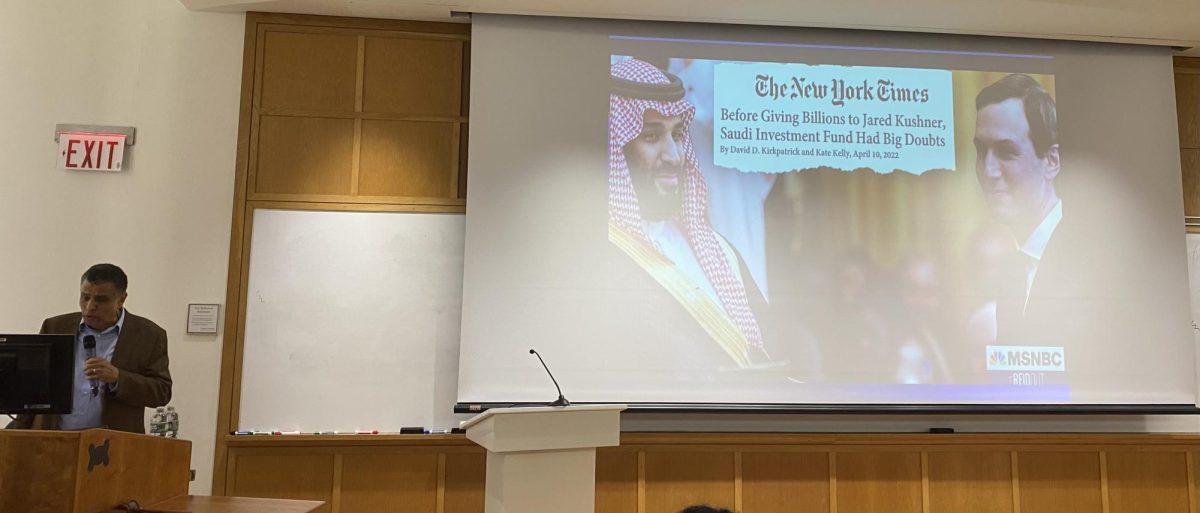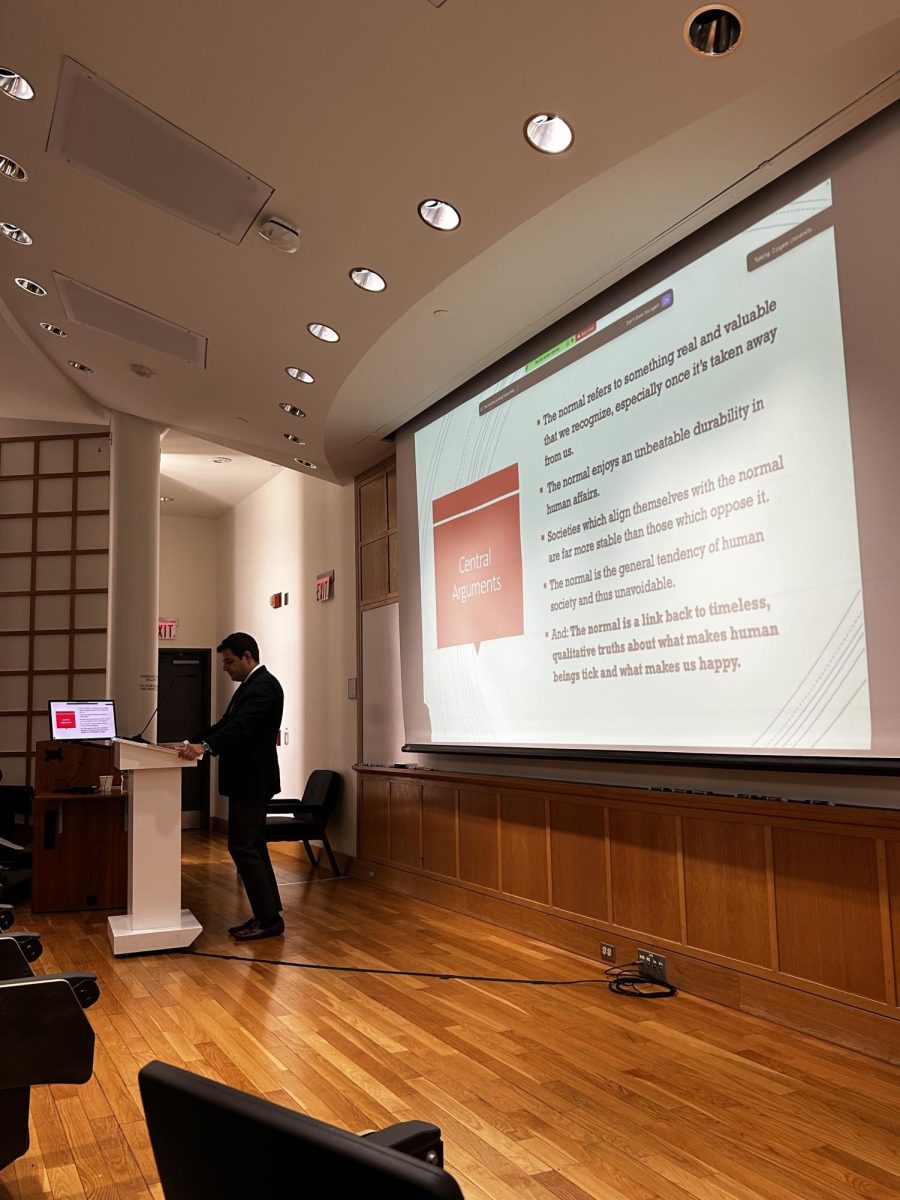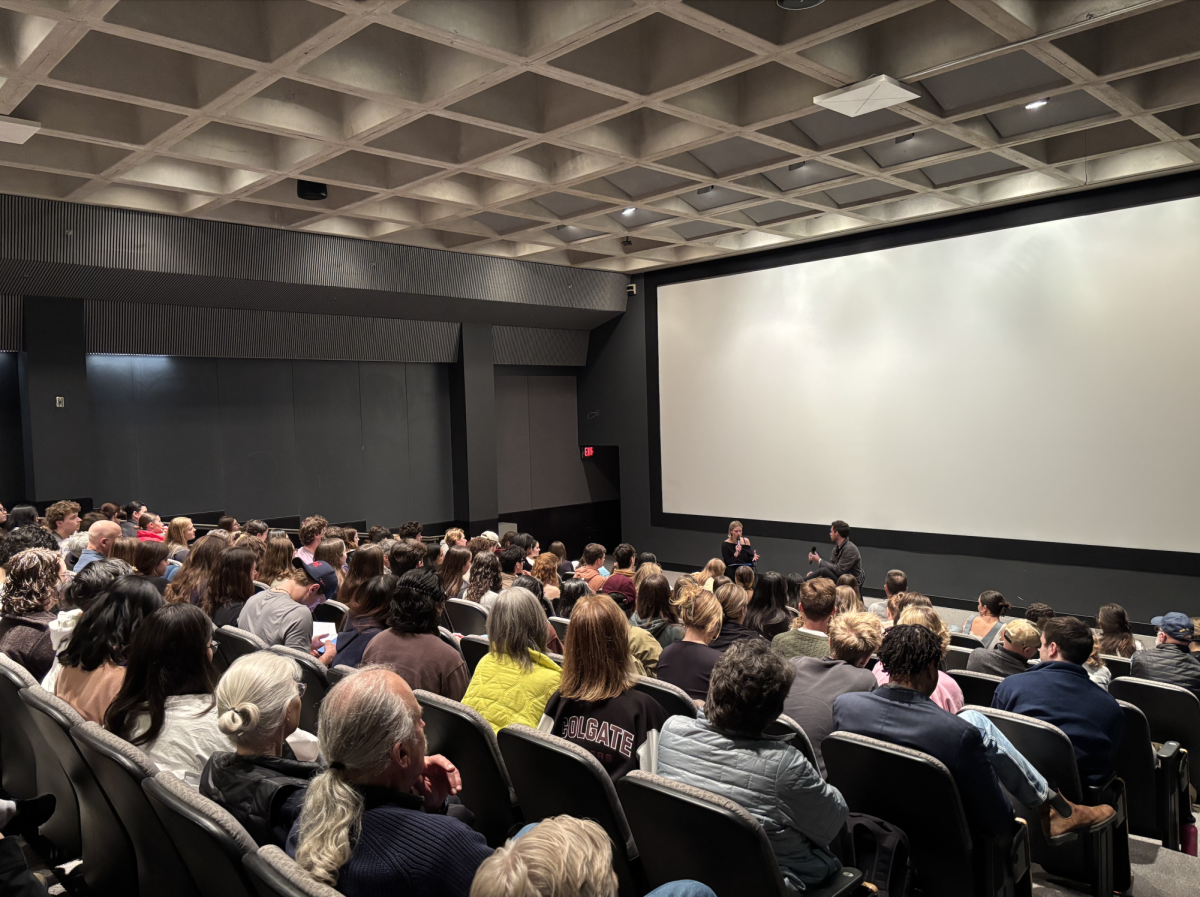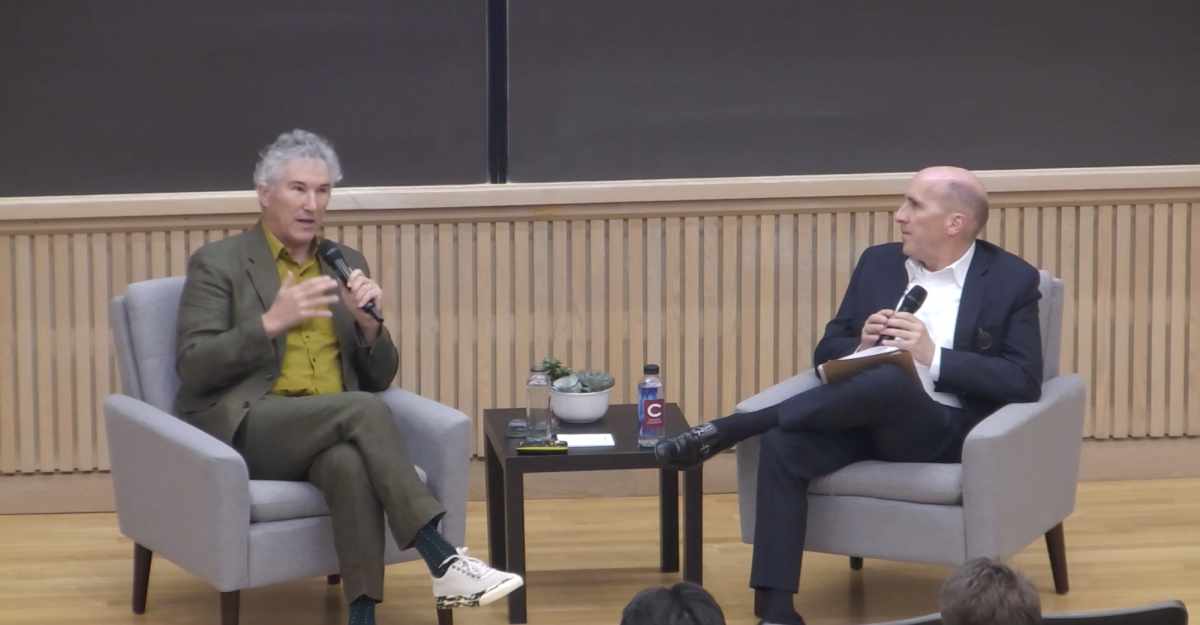The Middle Eastern and Islamic studies program at Colgate University hosted Hafez Al Mirazi, the former Washington Bureau chief of Al Jazeera and a prominent figure in Egyptian broadcasting for 40 years with over a decade of teaching experience, on Sept. 25 in the Persson Auditorium.
Mirazi’s decades of experience in politics and international reporting led to his new goal of educating others on the complexities of the Arab world and urging awareness toward the issue of declining freedom. Mirazi explained to listeners the connection between political corruption in the Middle East and the political views held by Arab Americans in the United States, citing issues with the ongoing Israel-Palestine conflict and controversial moves made by current and former presidents.
Mirazi’s talk largely relied on a combination of statistics and his knowledge gained from fieldwork to explain to the audience his views on the imminent threat of political collapse in the Middle East. Mirazi defined terms for those less familiar with political issues, explaining that the Freedom House Index is a measure of how free a nation is. The index is based on 60 factors for freedoms and 40 for rights, with a total score of 100. Countries with a score of 70 and above are considered free; those with a score of 45-70 are considered partly free, and those falling below 45 are considered not free. To preface the first issue he spoke on, political corruption in Egypt due to skewed and unfair elections, Mirazi shared a popular anecdote.
“President Jimmy Carter asked [former Egyptian] President [Anwar] Sadat how he managed to get 95-99% of the votes in his elections. Sadat replied that he would send his chief of the security agency to help Carter’s team. The chief of the security agency was given the polls a day before the elections and was told to show Carter’s team how to handle them. The results showed Jimmy Carter with nine percent, Ronald Reagan with one percent and President Sadat with 90%,” Mirazi said.
After sharing this, Mirazi quickly returned to a more serious tone. Following the Arab Spring uprisings in 2011, Egypt held free and fair elections, and the country was rated as “partly free” by Freedom House, defined by having some political rights and civil liberties in combination with significant restrictions. By 2012, their score had shot up to 54, substantially greater than many other countries in the Middle East.
However, in 2013, the military unjustly intervened in the government, and the president was jailed. Since then, Egypt has held elections that have been widely criticized as unfair, and the country’s Freedom House rating dropped to “not free.” Mirazi added that in 2019, the Egyptian government amended the constitution to allow the president to serve an additional term and extended the term length from four to six years.
“This change has been widely criticized as a power grab by the president and has contributed to Egypt’s decline in freedom and democracy,” Mirazi said. “In 2012, Mohamed Morsi received 51.73% of the votes, a signal of progress toward fair and competitive elections. However, in 2014, 2018 and 2023, Abdel Fattah el-Sisi received anywhere from 89% to 98% of the votes.”
Tunisia followed a similar timeline and made significant progress after the Arab Spring. However, in 2019, the president of Tunisia suspended the constitution, dissolved the parliament and jailed opposition leaders. As a result, Tunisia’s Freedom House rating dropped to “partly free,” from a 71 to a 50.
“This is another chapter of a sad story of a case of fair elections that could have become the case in the Arab world, and we didn’t get it,” Mirazi said.
First-year Neda Sharifi shared that the lecture taught her a lot about the usage of the Freedom House Index in Tunisia, especially how the country was considered “free” prior to the drop.
“This was eye-opening, as many consider Israel to be one of the only democracies in the Middle East and North Africa,” Sharifi said.
The discussion then turned toward Arab Americans and the 2020 presidential election. There are 2,322,000 registered Arab-American voters, yet only 1,201,000 voted in 2020, according to Mirazi. This is significantly lower than the national average of registered voters who participate in elections, which is at around 66%. During his presidency, Trump’s Middle East policy was marked by a number of significant events, including the Abraham Accords, a peace agreement between Israel and several Arab states, and continued support for Saudi Arabia. Mirazi added that Biden’s administration has been more opposed to diplomatic relations with Saudi Arabia — a country criticized for its human rights issues with a Freedom House score of eight.
He stated that issues surrounding Trump’s campaign have led to further pushback and controversy due to Arab-American objections to the pro-Israeli atmosphere in the United States. Mirazi said that a prominent donor, Miriam Adelson, gave $100 million to Trump’s campaign in 2022, reportedly in exchange for a promise to support the annexation of the West Bank. Mirazi added that these vendettas to expand Israeli territory have been met with controversy.
“The West Bank is a region in the Middle East that is currently under Israeli occupation. The annexation of the West Bank would mean that Israel would officially claim sovereignty over the region. Trump has expressed support for the annexation of the West Bank, stating that Israel needs to be expanded. This has been met with criticism from many, including Palestinian leaders and human rights organizations,” Mirazi said.
These issues, in combination with a belief that no candidate had Palestinian interests at heart, led over a million Arab Americans to not vote in the 2020 election. However, Mirazi stated that there was a different candidate that Arab Americans favored.
“Among Arab Americans, there was someone with even more popularity than Harris and Trump now. Her name is Jill Stein, a Jewish physician,” Mirazi said. “She considered Gaza as the number one issue for her cause.”
First-year Joan Harris, another attendee, shared that she now understands more about voting patterns for Arab Americans.
“I found his analysis on how Arab Americans will be voting in the U.S. election this year interesting. I had not known Jill Stein was so popular among Palestinian-Americans or that she is an advocate for stopping genocide in Gaza,” Harris said.
Mirazi believes true change must occur within leadership before progress can be made to improve freedom in Middle Eastern nations, in addition to resolving continued complexities with American political candidates.
“Business as usual is not going to resolve [political corruption], but it’s going to make it much, much worse when you leave it or pass it to whoever comes after you,” Mirazi said.











